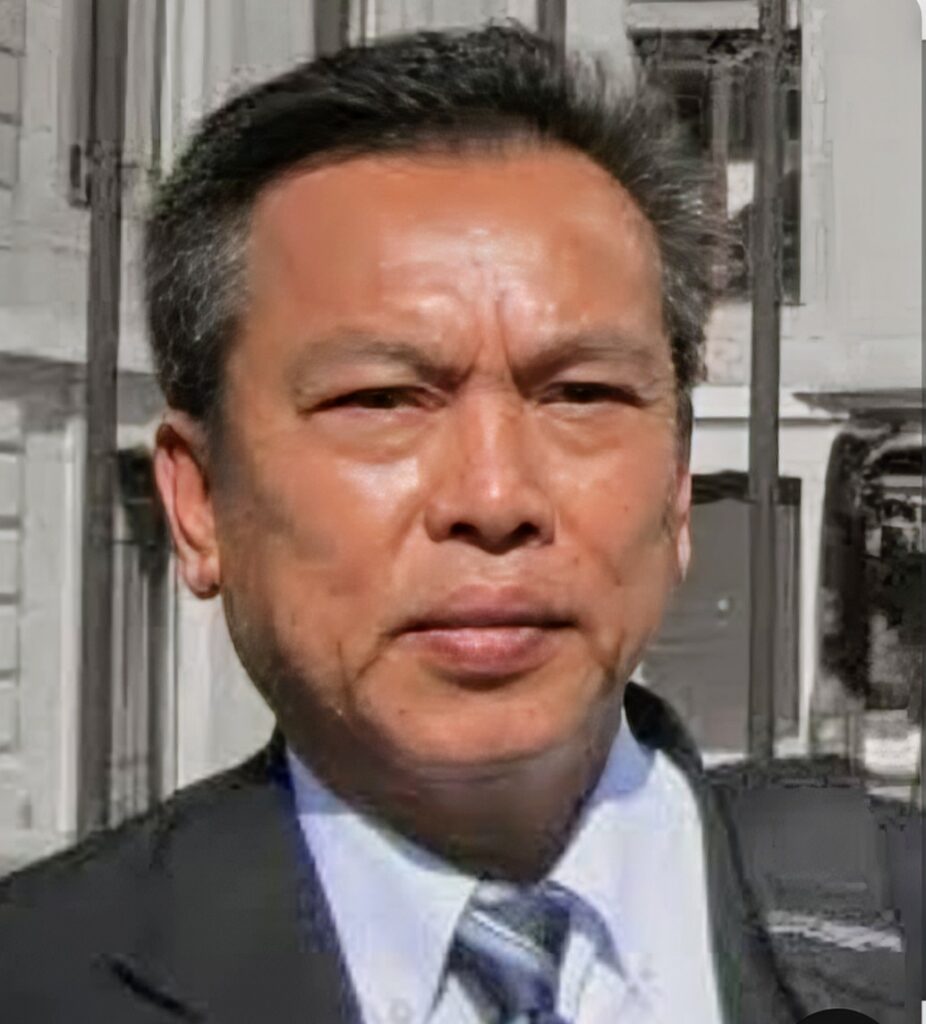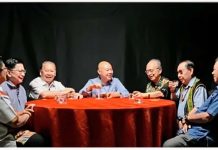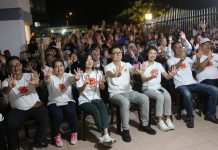William and Isaiah Majinbon
William Majinbon…The Native Court must continue to reflect the values of all Sabah citizens.
KOTA KINABALU : – Two indigenous leaders says discrimination has no place in the Sabah Native Court Institution.
Datuk William Majinbon, the Community Development Leader for Inanam and Isaiah Majinbon, Native Court Judicial Reform Committee Member and Deputy Chairman of Young Advocates Sabah (Sabah Law Society) supports efforts to modernise and elevate the Native Court institution.
However, in a joint statement today, both firmly reject rhetoric that is divisive and discriminatory on the basis of religion.
“In principle, we agree that the Native Court should be elevated to be on par with the Civil Court and Syariah Court,” said William, a former Head of the Kota Kinabalu Native Court added.
“However, the claim that no reforms have been carried out is inaccurate. Under the Sabah Maju Jaya Roadmap, the digitalisation process has been implemented including the digitalisation of Native Court records in 2022.”

William and Isaiah were responding to statements made by the President of Borneo’s Plight in Malaysia Foundation, Daniel John Jambun, who proposed major reforms to the Native Court system, including the exclusion of Muslim officials from the administration of indigenous affairs.
Jambun’s suggestion that only non-Muslim citizens are qualified to administer institutions related to customary law has raised concerns about the direction and tone of this reform discussion.
Isaiah supported William’s views but expressed concerns about the religious narrative presented by Jambun.
“It is very worrying when the administration of indigenous affairs is portrayed as if it has been affected simply because of the involvement of Muslim officials,” Isaiah explained.
“This kind of narrative not only threatens the harmony and unity of the multi-religious community, but also contains elements of discrimination. Religion is not a determinant of a person’s competence or qualifications.”
He stressed that the identity of Sabah’s natives transcends religious boundaries, encompassing both Muslim and non-Muslim communities, including the Bajau, Brunei and Dusun Muslim communities who have long practiced custom and played a role in the Native Court.
“The suggestion that only non-Muslims are qualified to administer customary affairs is a form of denial of the contributions of Muslim natives who also have cultural roots and a deep understanding of the customary heritage of the Sabah indigenous community,” added Isaiah.
William also emphasized this point by mentioning several Muslim native leaders who have served with distinction in the Native Court, amongst others, OKK Mohd. Laiman Diki, OKK Haji Mahali, Native Chief Asai Ghani and Native Chief Taib Meggah.
“They are figures who have played an important role in upholding and administering customary justice for several decades,” he said.
Responding to Jambun’s comparison with the Syariah Court, both leaders explained the difference in jurisdiction between the Syariah Court and the Native Court.
The Syariah Court has exclusive jurisdiction in matters of Islamic law and can only be administered by Muslims.
On the other hand, the Native Court derives its jurisdiction from customary law, which is practiced by all native communities regardless of religion.
“In any customary dispute, Muslim natives have an equal standing to seek justice in the Native Court,” said William.
“Denying their rights on the basis of religion is a form of denial of justice.”
Isaiah added that all reforms that are to be implemented must be based on an inclusive meritocracy and not an exclusive identity.
“The criteria for administering the Native Court should be based on identity as a native, mastery of customs, and professional competence.
Religious background should not be a barrier.
In short, discrimination has no place in the institution of the Sabah Native Court,” he stressed.
On the issue of legal oversight, Isaiah refuted the claim that the Syariah Court has authority over the Native Court.
Instead, he said, the only supervisory authority over the Native Court of Appeal is the Civil High Court through the judicial review process.
“This shows the need to amend Article 121(1A) of the Federal Constitution to recognise the Native Court as an independent judicial body on par with the Civil Court and Syariah Court,” he said.
He explained that a three-tier judicial structure in Sabah needs to be established, namely the Civil Court, Syariah Court and Native Court, each of which is independent, but equal in terms of position and function.
Meanwhile, regarding Jambun’s proposal to establish an Independent Reform Commission, William explained that reform efforts have already begun and are in the final stages.
“The Native Court Judicial Reform Committee, under the Sabah Native Affairs Council (MHEANS), is currently actively drafting a new enactment to strengthen the legal basis and streamline procedures in the administration of Native Courts,” he said.
“This effort should be supported, not belittled.”
Both leaders called for the spirit of unity and moderation to continue to be maintained in reform efforts.
“Sabah is a state known for its harmony and moderation,” said Isaiah. “Our reforms must reflect this spirit and not be a tool to deny the place or role of any party on the basis of religion.”
“The Native Court must continue to reflect the values of all Sabah citizens,” William added.
“We must build a system that embraces every community that makes customs a shared heritage.”



